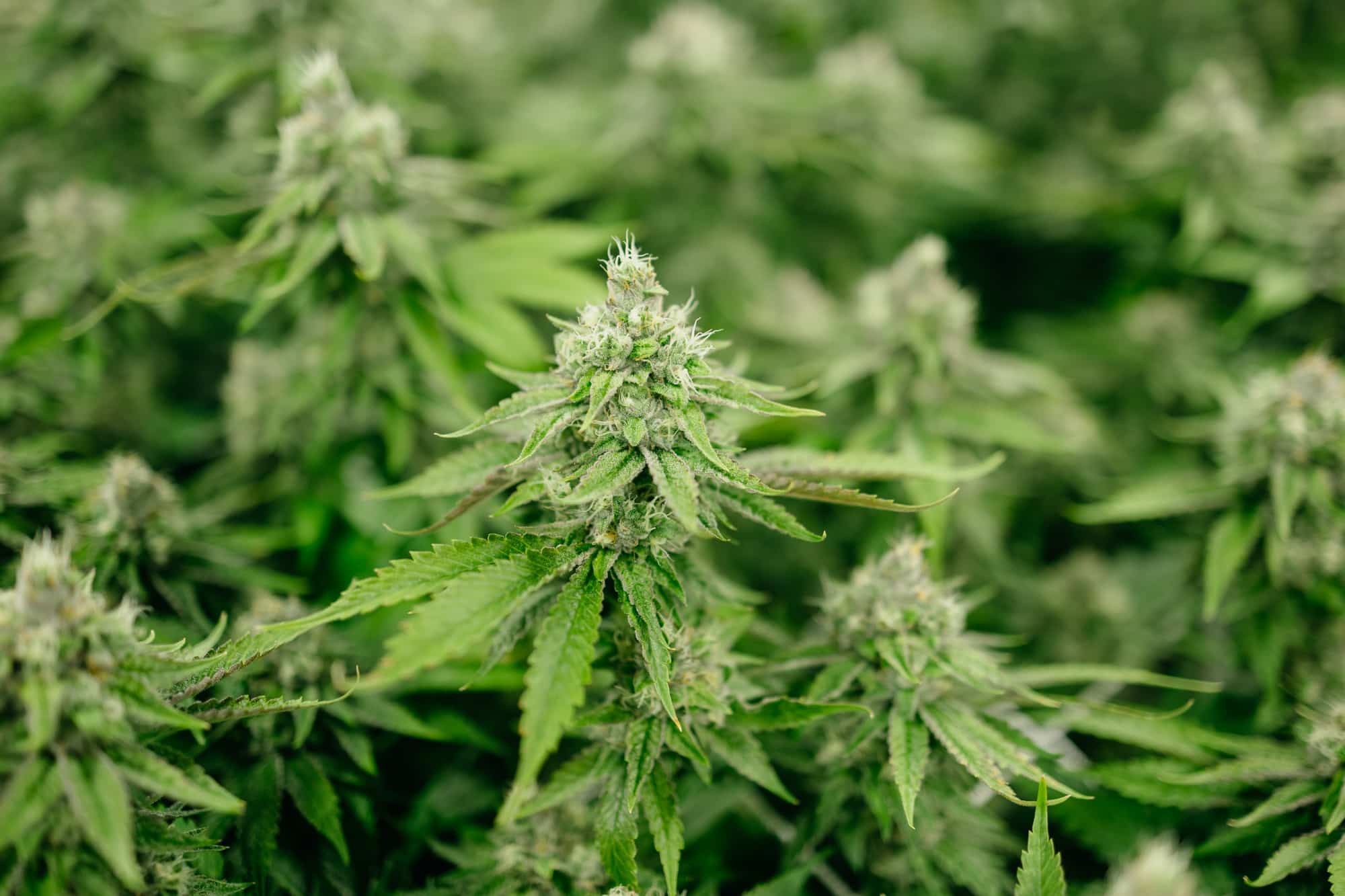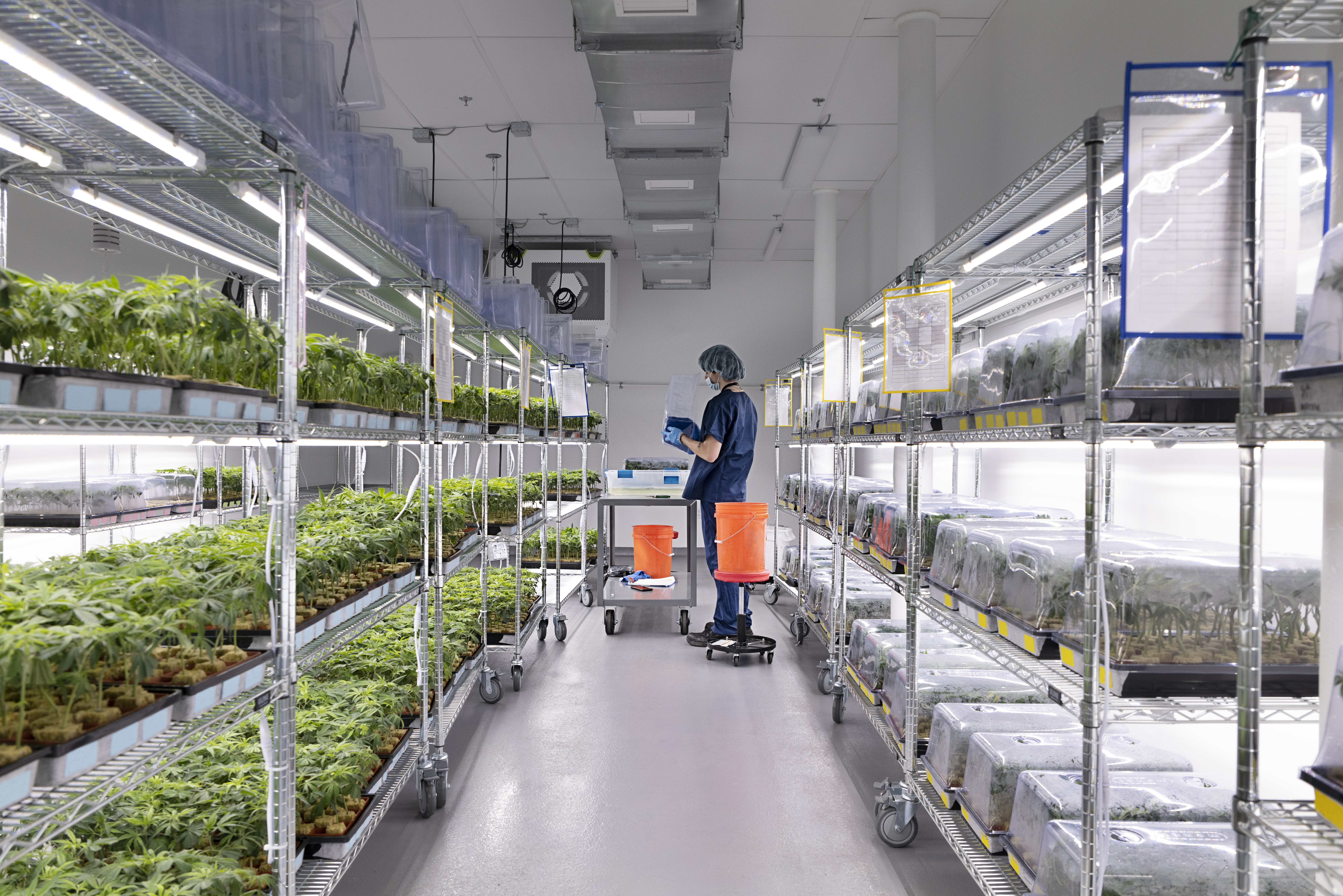Author: Autumn Lopez

From the secluded peaks of Humbolt County to the sun-kissed shores of Southern Florida, to the rolling hills of present-day Central Massachusetts, the naissance of Paper Crane Cannabis spans thousands of miles and two generations of cannabis entrepreneurs. Veterans of the war on drugs, husband and wife duo Lisa and Boey founded Paper Crane Cannabis in 2019, becoming the state’s first outdoor cultivation in the Social Equity Program. Rooted in a family legacy of cannabis entrepreneurship and a commitment to sustainable practices, every facet of Paper Crane Cannabis reveals a profound dedication to both the plant and the community it serves.
As organic, sun-grown cultivators, Paper Crane Cannabis is dedicated to producing high-quality flower using sustainable and regenerative techniques that help preserve the local environment, embodying their Loyal To The Soil philosophy. Coupled with their multigenerational history in the cannabis industry, Paper Crane’s approach to cannabis is truly unique. We sat down with founders Lisa and Boey to discuss their history, sustainable practices, and legacy cannabis operations more broadly.
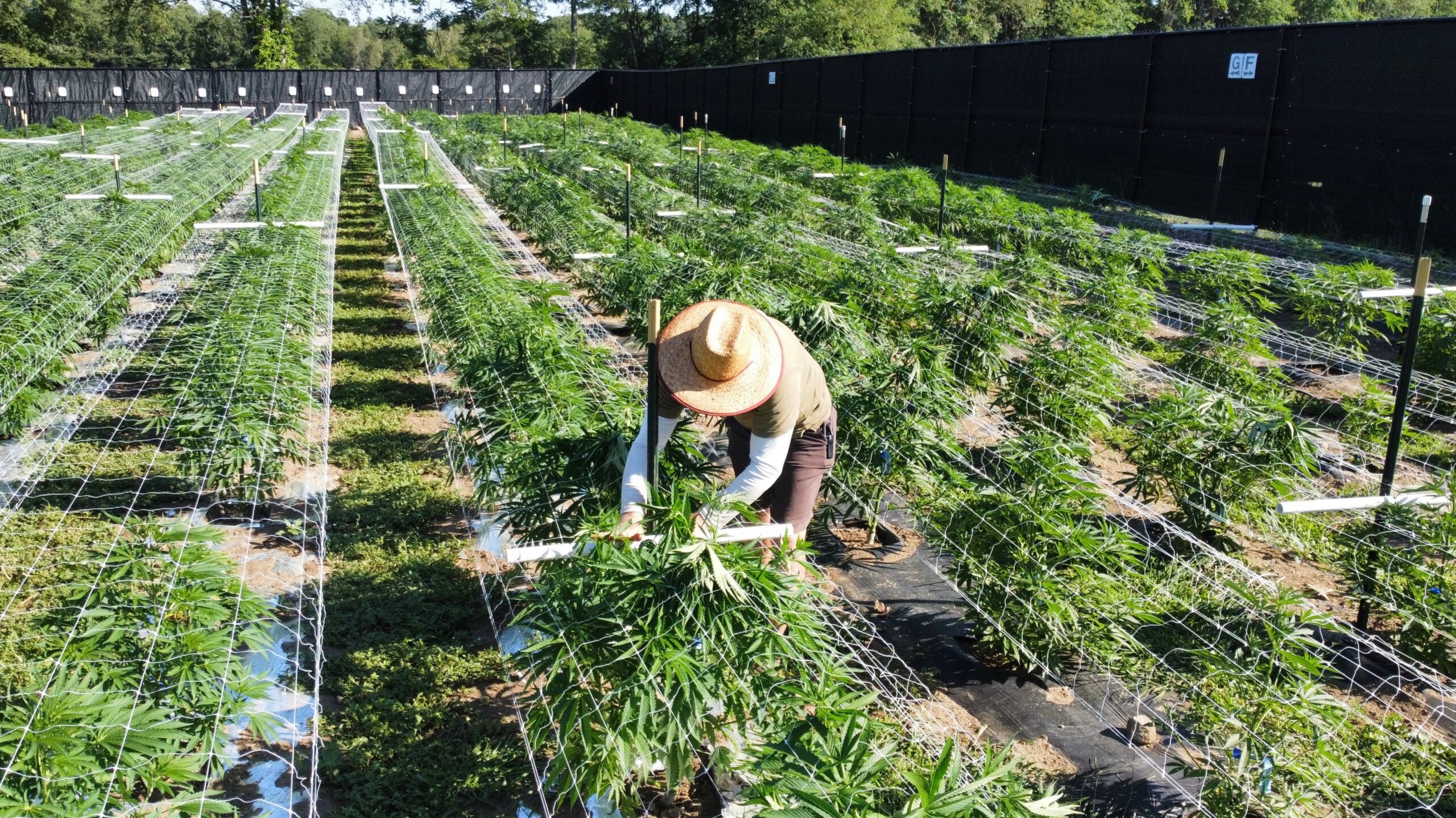
A Legacy of Entrepreneurship
Boey, co-founder of Paper Crane Cannabis and second-generation cannabis entrepreneur, can trace his roots in the industry back decades, with his father and uncle paving the way before him.
Growing up in southern Florida, Boey was first introduced to farming on his family’s sprawling organic mango and avocado farm. Working his family’s land helped ignite his passion for eco-friendly growing practices, while his father and uncle’s cannabis entrepreneurship fostered his passion for the industry.
Boey’s father and uncle have been involved in the cannabis industry since the late 1960s. Their family’s hometown sits near a web of tropical intercoastal waterways connecting the mainland to the Florida Keys, a main entrance point for international cannabis during this time.
Despite the alluring and shadowy world of prohibition-era cannabis, to Boey and his family, it was just a part of life. As he puts it, “…in Northern Wisconsin…everybody’s in the cheese and dairy industry, and in South Florida, a lot of people were in the smuggling industry.”
Although his family has deep ties to Florida cannabis culture, Boey attributes his love of the plant to his experience visiting cultivations in Northern California as a kid.
“So one of our summer family vacations… was to Northern California to another close friend of my dad’s who was originally from down here in South Florida, a guy named Richard Enright, and he was an isolationist and one of the original settlers of Southern Humboldt County… That was when I really fell in love with [cannabis] because these really healthy, holistic, amazing people who were really pioneering the medical grow movement at a time when the consequences were extremely high…So I just saw that [and] I kind of fell in love with the big, majestic outdoor organic cannabis plants as a little kid looking up at a big nine-foot NorCal skunk,” says Boey.
This unique family legacy of cannabis entrepreneurship inspired Boey to enter the legacy market in the late 1990s, following in his family’s footsteps. Unfortunately, the ongoing war on drugs would soon precipitate a series of personal hardships for both him and Lisa that would lay the foundations of what was to become Paper Crane Cannabis.
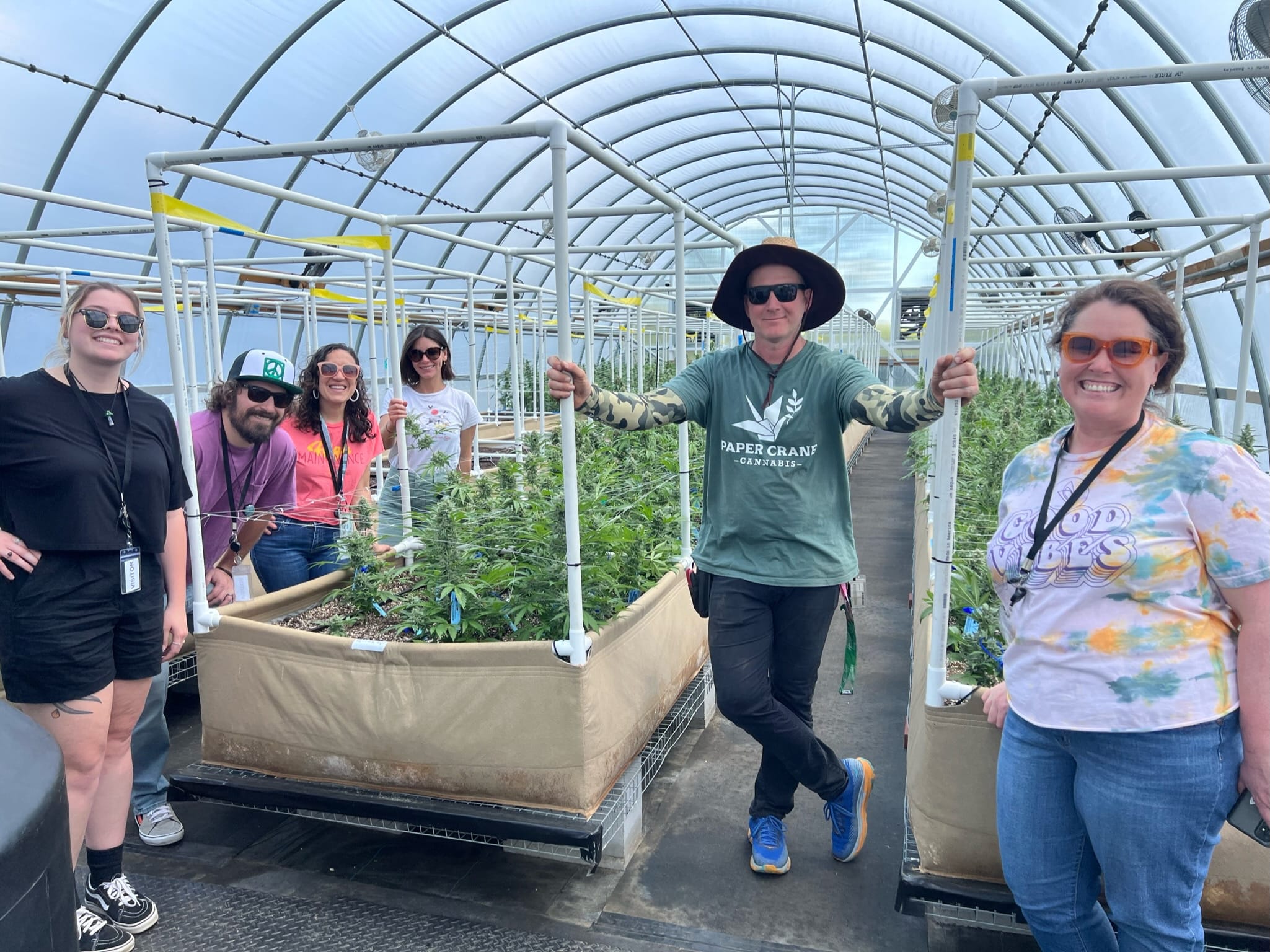
Creating Paper Crane Cannabis
The history of Paper Crane Cannabis begins long before its founding in 2019. In the early 2000s, after establishing a firm footing in the legacy market, Boey attended the Berkeley School of Music in Boston. After college, Boey stayed in Massachusetts, pursuing parallel careers as a burgeoning musician and cannabis entrepreneur. However, his and Lisa’s lives would be abruptly and irrevocably changed in 2006 when the fiercely punitive criminal justice system intervened, setting into motion a chain of events that would ultimately shape their future endeavors.
In 2006, Boey was arrested in Massachusetts for possession of cannabis during a targeted sting operation. Originally facing 12-16 years in federal prison, Boey was ultimately convicted and incarcerated for approximately 1,000 days in state custody, with four years of probation following his release. Acknowledging the seriousness of his situation, Boey recognizes the comparative leniency he has received, recognizing that many individuals, particularly those from marginalized communities, have not been afforded the same level of fairness within the legal system.
During his lengthy trial and incarceration, he and Lisa found solace and connection in an ancient Japanese legend in which folding one thousand paper cranes can bring the creator good luck. As Lisa tells it, “…it’s just like a meditation, like something for the hands and something for the mind when you’re really stressed and anxious…We never expected to see those cranes ever again, but after we formed the company and we tapped one of our other founding members [Ben], who was Boey’s roommate at the time when he was busted… and he showed up with the bags full of the paper cranes.”
After Boey’s release, he, Lisa, and Ben drew on their previous experience with cannabis cultivation and Boey’s rich family history in the industry to create something truly unique—a sustainable and spiritually significant cultivation that pays homage to the generations of legacy entrepreneurs who came before.

Cultivation - Loyal To The Soil
At the heart of Paper Crane’s cultivation approach is a deep respect for the cannabis plant and honoring the delicate balance of nature that allows it to thrive. Their outdoor, sun-grown techniques conserve resources, informed by the cultivation methods of legacy growers.
Lisa and Boey started their cultivation journey on the grounds of a former heritage apple orchard in Hubbardston, Massachusetts. They began renovating the orchard by removing the old apple trees and meticulously preparing the soil for years before planting their first cannabis crop.
“We’re really soil cultivators, and then the cannabis plants, they know what to do in that rich fertile soil,” says Lisa. “We try to grow in a way that actually enhances the land and enhances the community where we are. We buy our compost locally, supporting as many local farmers [as we can]. We try to create this ecosystem, and that’s part of our regenerative farming.”
They began adding locally sourced amendments, including alpaca compost, kelp, worms, and seed husk matter, to enrich the earth and foster a healthy microbial environment. They then planted cover crops like winter rye and local clover species, which provided additional nutrients to the soil as they moved through their life cycle.

Drawing from his earlier experience in Humbolt County, Boey brought the West Coast outdoor cultivation techniques he learned growing up to Massachusetts, specifically their focus on sourcing local inputs and incorporating techniques like ‘super cropping,’ which allows them to maximize their yield.
Leveraging a combination of open-air fields and greenhouses, the team at Paper Crane has devised an innovative approach to year-round production, deftly navigating the challenges posed by the unpredictable New England climate. The rich nutrients of the living soil and the full-spectrum UV light from the sun work synergistically to enhance the flavor of Paper Crane’s cannabis, providing the rich terpene profiles their flower is known for.
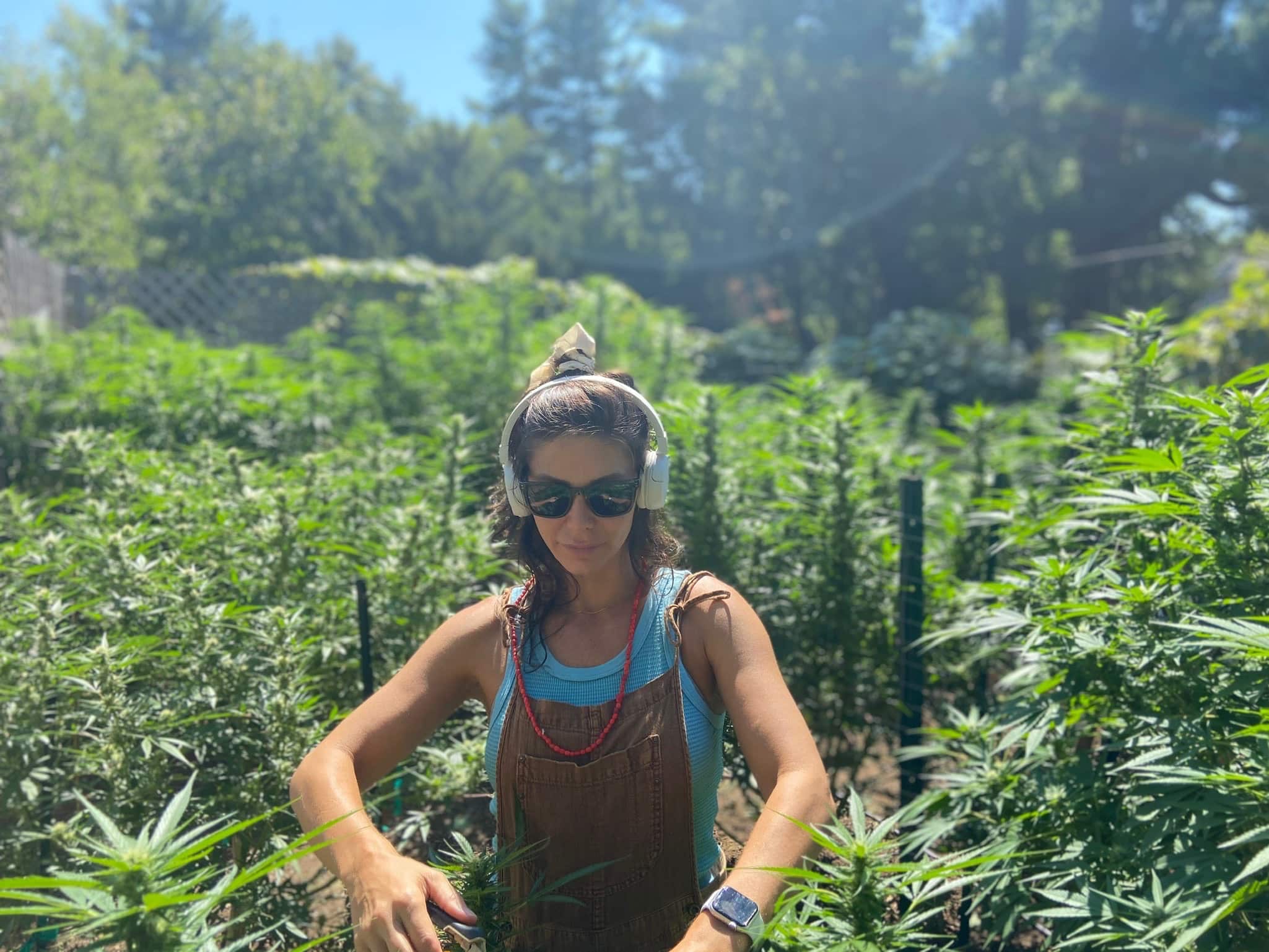
Social Justice and The Path Forward
As experienced legacy cannabis entrepreneurs who have navigated the challenges of the war on drugs, Paper Crane is deeply committed to incorporating social equity into every aspect of their operations. Central to this mission is the prioritization of hiring legacy operators, individuals with extensive experience in the cannabis industry prior to legalization. In the wake of the recreational and medical cannabis industry’s rapid growth in Massachusetts, many legacy operators found themselves sidelined by the influx of new dispensaries and cultivators. Recognizing legacy operators’ invaluable expertise and perspective, Paper Crane is dedicated to providing opportunities for these individuals within their cultivation team.
Although the Massachusetts cannabis community strives to foster an equitable environment for legacy operators and other marginalized entrepreneurs, there is opportunity for more to be done. High start-up costs, predatory lending tactics, and land ownership requirements prevent many legacy operators from entering the market and significantly impact the success of those who are able to start their legal operations. To Boey and Lisa, improving the path for legacy operators hinges on reducing these barriers of entry, which starts with promoting sun-grown operations like theirs.
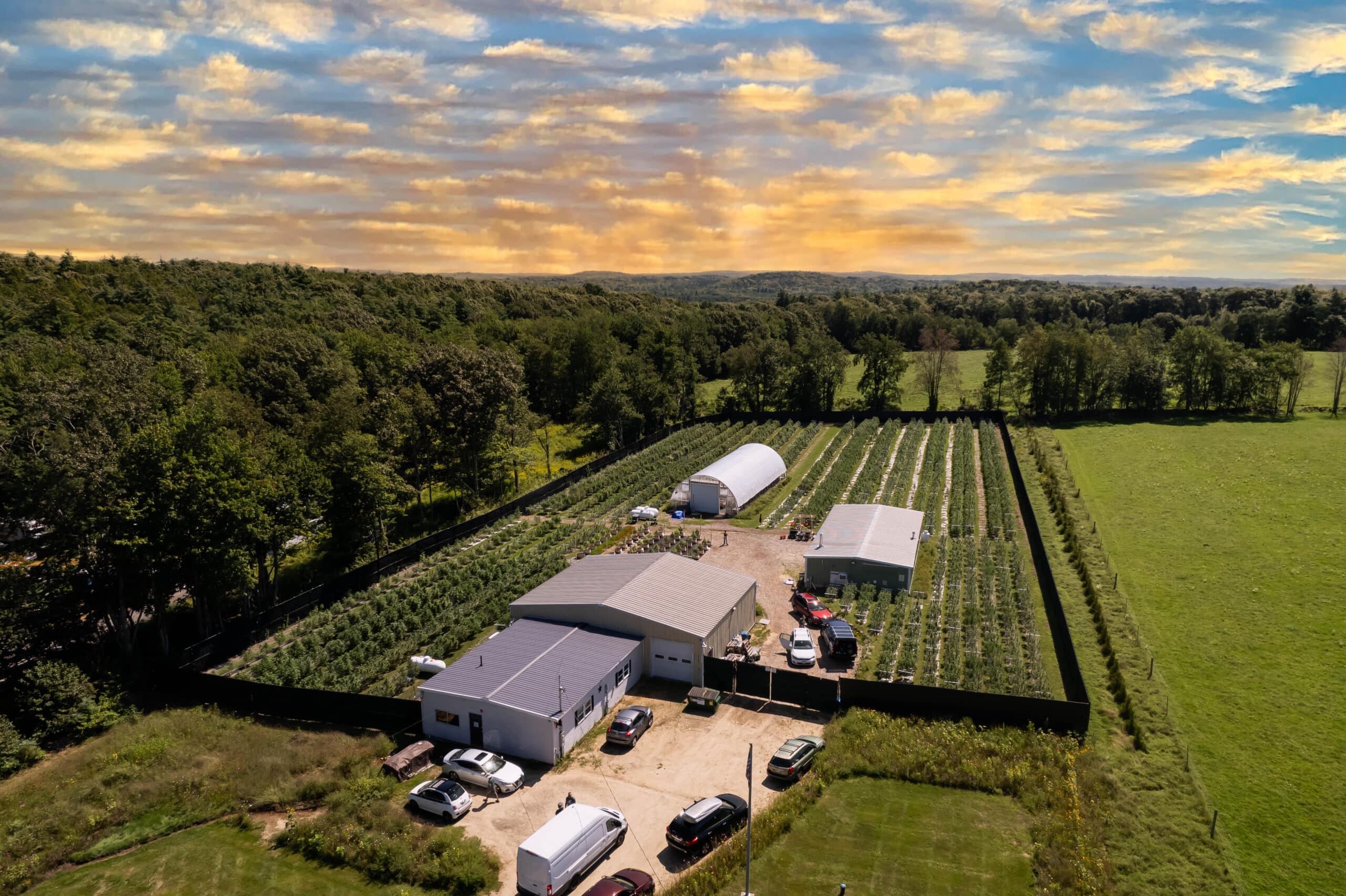
Legacy operators often face considerable barriers when raising start-up capital, which makes establishing their cultivation facilities especially challenging. Outfitting a cultivation with the necessary equipment and maintaining its operations is cost-prohibitive to many without access to traditional financial resources. Sun-grown cannabis, on the other hand, can be a more accessible alternative by reducing operating costs and equipment needs. Incentivizing sun-grows at the state level can provide a lower-cost entry point for legacy operators, suggests Lisa and Boey.
Another significant barrier to entry is the lack of access cannabis cultivators have to agricultural bylaws and grants that benefit traditional agricultural producers, including access to insurance. Despite cannabis’ newfound legality, natural disasters and weather pose an increased risk to cannabis operators compared to traditional food crop producers. Boey explains, “For example, last year, there were tornadoes and storms that came through that nearly missed our farm… If one of those tornadoes touched down on Paper Crane and destroyed our crop, insurance wouldn’t cover that. Insurance doesn’t cover any damage unless it’s inside the building. So, it puts us at tremendous risk.”
However, despite these challenges, there is hope on the horizon! “I think the Social Equity Trust Fund, thank God, that’s finally coming. I know that we’re personally super excited because we still had to borrow a bunch of money, and… it shuts out a lot of regular folks that may have been part of the Legacy industry,” says Boey.
Open discussions between the Cannabis Control Commission and the wider cannabis community continue to push state regulators to improve social equity policies and strengthen the industry as a whole. The steadfast perseverance demonstrated by cultivators like Paper Crane in surmounting numerous obstacles serves as a testament to the ingenuity and unwavering determination of legacy operators within this burgeoning market.

In the rich tapestry of cannabis entrepreneurship, Paper Crane Cannabis is a unique cultivator with an enduring legacy of passion and profound commitment to both the plant and industry. From Boey’s upbringing as a second-generation operator to both his and Lisa’s dedication to organic and equitable farming techniques, Paper Crane’s journey reflects a deep reverence for the plant and its historical significance.
Through their dedication to sustainable practices, embodied in their Loyal To The Soil philosophy, Paper Crane cultivates not just cannabis but a connection to the land and a sustainable future. Moreover, their unwavering commitment to social equity in the industry underscores their belief in fairness and inclusivity, ensuring that the voices of legacy operators are not only heard but celebrated. As they continue to navigate the evolving landscape of cannabis, Paper Crane is paving a path forward toward a more equitable and sustainable future for all cannabis enthusiasts and entrepreneurs alike.
Gage is a proud partner of Paper Crane Cannabis. Check out our menu and taste Paper Crane Cannabis for yourself!

